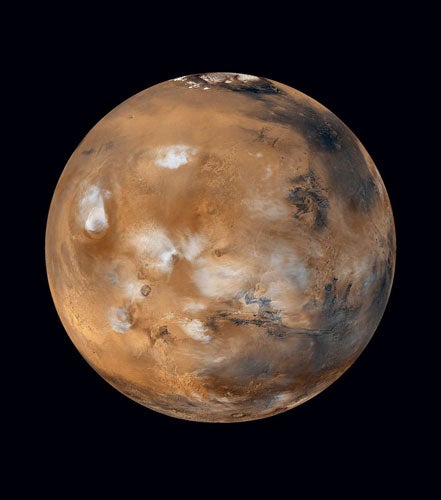An orbiting spacecraft has discovered a key mineral in bedrock on the surface of Mars that suggests the planet might once have had an environment hospitable to life, scientists reported today.
The Mars Reconnaissance Orbiter detected carbonate mineral in rock outcrops in Nili Fossae, a region of valleys that have cut into the planet's ancient crust, suggesting the area was not as harsh as other places on Mars.
The mineral, which forms in the presence of water, had previously been detected in trace amounts in Martian dust and soil.
But its presence in bedrock indicates water there was not as acidic and thus more hospitable to life.
The region "would have really been a clement, benign environment for early Martian life," said mission scientist Bethany Ehlmann of Brown University.
The results were presented yesterday at an American Geophysical Union meeting in San Francisco and will appear today in the journal Science.
Scientists planning the next Mars landing - the Mars Science Laboratory - initially considered Nili Fossae as a potential landing site, but it did not make the final cut.
The launch of the lab is set for 2011.

Join our commenting forum
Join thought-provoking conversations, follow other Independent readers and see their replies
Comments